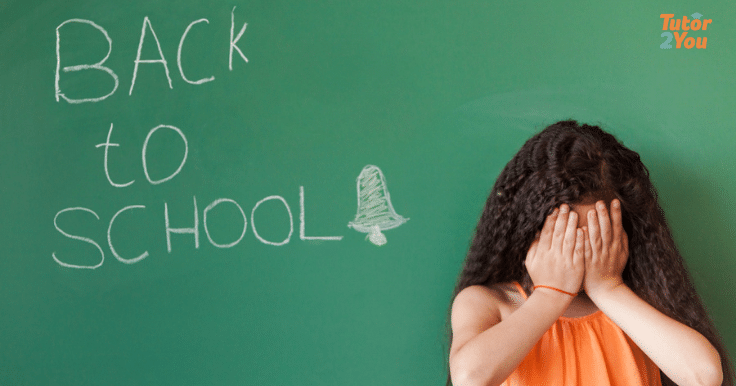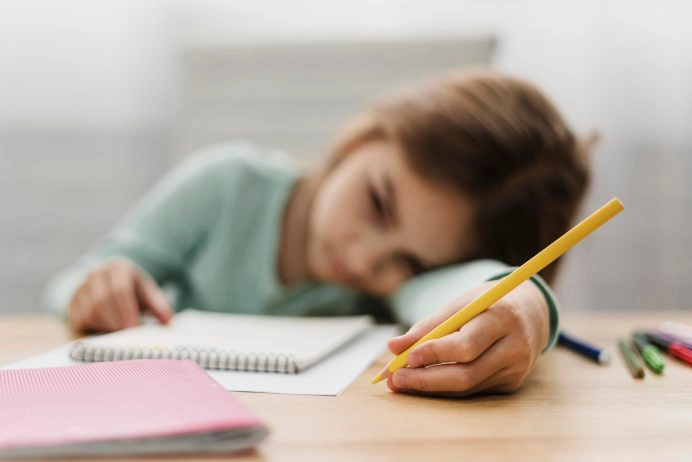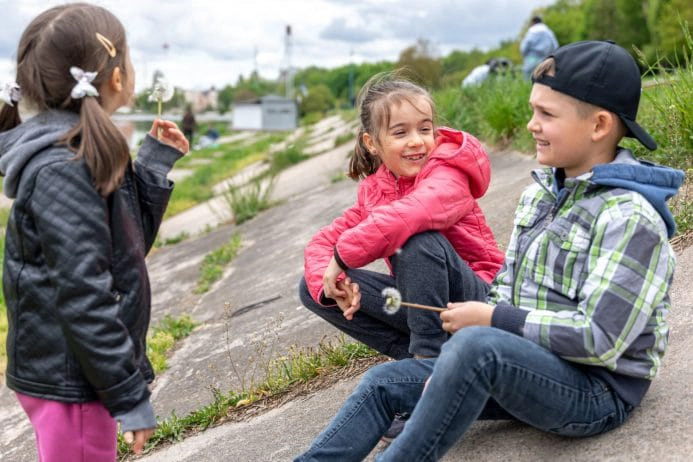
How to Deal with Back to School Anxiety
First and foremost what is anxiety? It can range from a feeling of worry or fear that is mild or to more severe anxiety disorders. Back to school anxiety would normally fall into the fear and worry category, unless there are other underlying fears brought to the surface by realising it’s back to school time.
Often fears and anxiety can be put to rest with some reassurance, or facing the problem and discussing the different aspects of the anxiety. Talking about different feelings, and how the negative ones can be out smarted with positives, is helpful.
What are some of the triggers to anxiety a child may face as they return to school?
- Meeting and making friends.
- Extra work load as a new term begins.
- Not coping with a new environment or with facing the old one they feared before.
- Settling into a new classroom and meeting a new teacher.
These are just a few of the anxieties many children face when they are returning to school.

What are some of the signs you may observe that could show your child is feeling anxious?
- Changes in sleep patterns and eating habits. There maybe an underlying problem keeping your child awake or making them lose their appetite.
- Asking a lot of questions about when school starts. Like, how will they get to school, have they got all their books and who will be in their class could indicate a fear of returning to school.
- Sudden physical complaints like a headache, sore tummy or being tired all the time, may be signs of stress.
Christopher Robin in the Winnie the Pooh stories said:
“You are braver than you believe, and stronger than you seem, and smarter than you think.”
One of the keys to overcoming stress is to face your fears and talk about the reasons for feeling anxious. Instead of avoiding the anxiety issues try to approach them and help think through some steps to make the anxiety easier to handle.
Can parents do this without increasing the amount of stress? Yes they can.
Here are 5 simple solutions

1. Face the problem, discuss your child’s fears and their feelings. Bring the anxiety out in the open and be empathetic with regard to what they are going through. Acknowledge what it is they are fearful of and talk through ways to overcome the stress related situation.
2. Practice working through the stress. Once you have established what it is, you can give practical solutions, and have practice runs playing out the feared scene.
Is it catching the bus? Find time to do it together or phone a friend to be a bus buddy. Is it finding your way round a new school? Go to the school together beforehand and have a look around to be familiar with where the classroom is and how to find the toilets and other facilities.
Is it reuniting with friends from the previous year? Organise a play date and get your child together with their friends. There is a practical solution to every situation.
3. Boost your child’s moral by telling them they are braver than they believe and bring out their strengths to reassure them for the coming term. Find out if there are other underlying fears that are caught below the surface. Through your empathy and loving approach they can be faced with some help.
4. Teach your child deep breathing exercises to calm them down in stressful situations. Emphasis there is always help around and discuss who can help them at school if they feel anxious.
5. Plan a structured routine to get to school on time. Rushing to school or arriving late causes stress and can upset the whole day. Making sure you are packed the night before, and have everything you need for the day at school, makes getting to school less stressful.

Here are some of the other deeper problems that cause anxiety as children return to school:
- Bullying. Perhaps your child was bullied the year before and nothing was done to solve the problem. Going back to school means your child may have to face the same children in class or on the playground.
- Poor academic performance. If your child’s results were not very good the year before they may be feeling worried about how they will cope with the new work.
- The effects of home schooling and the pandemic, covid 19. Children may be fearful of going back to school after being home schooled during the lock down period.
- Not coping because of a learning difficulty. Your child may have a learning difficulty. They have managed to keep up with their own coping skills, but as they move up the education ladder these coping mechanisms no longer work.
- Separation anxiety. There may be some trauma at home and your child is fearful of the repercussions. A recent upset in the family, could lead to separation anxiety.
The way your child functions at school is dependent on being in a calm state to receive new ideas and learn new skills. If you notice signs of stress, find out what fears are attached to going back to school.
However, there are some benefits to facing up to the anxious moments in your life.
Eleanor Roosevelt said:
“You gain strength, courage and confidence by every experience in which you really stop to look fear in the face.”
Helping children deal with back-to-school anxiety is important for their physical, mental and emotional well-being.


